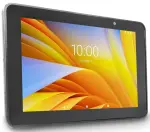
The Rise of Enterprise Tablets in Workplaces
In the rapidly evolving tech landscape, tablets have emerged as a cornerstone of modern business environments. Offering unmatched portability and connectivity, these devices are increasingly favored by companies looking to enhance operational efficiency and employee productivity. When it comes to integrating tablets into business workflows, Zebra tablets are designed for durability and high performance in tough environments, and offer the essential features that make tablets a viable choice for professional use.
Benefits of Enterprise Tablets
Portability
One of the foremost advantages of tablets is their portability. Lighter and more compact than traditional laptops, tablets can be effortlessly transported between meetings, worksites, and office locations, providing a seamless digital experience on the go.
Cost-Effectiveness
Tablets are generally more affordable than standard laptops or desktop PCs. Businesses can reduce hardware costs significantly by adopting tablets, especially when equipping a large workforce with mobile devices.
Ease of Use
With intuitive touch interfaces and simplified operating systems, tablets are accessible to users of all technological skill levels. This ease of use reduces training time and increases adoption rates across various departments.
Versatility
Tablets find utility in a multitude of industries. In healthcare, they are used for patient monitoring and data entry; in education, for interactive learning; and in retail, for inventory management and as point-of-sale systems. Their adaptability makes them an invaluable tool across diverse sectors.
Challenges in Implementing Tablets
Security Concerns
The portability of tablets also introduces significant security risks, such as data breaches and unauthorized access. Enterprises must implement robust security protocols and tools to protect sensitive information stored on or accessed through these devices.
Integration
Integrating tablets into an existing IT infrastructure can be challenging. Compatibility issues with business software and legacy systems can hinder seamless integration, requiring additional resources for configuration and management.
Durability
Tablets are more susceptible to damage from drops or spills, particularly in industries like construction or manufacturing. Investing in rugged cases or opting for industrial-grade tablets can mitigate these concerns.
Tablet Features Critical for Business Use
Battery Life
For professionals constantly on the move, long battery life is crucial. Tablets designed for enterprise use often emphasize extended battery performance to support a full day's work without the need for frequent recharging.
Storage Options
Deciding between cloud storage and local storage options is pivotal. Cloud storage offers flexibility and scalability, whereas local storage provides quicker access to data without the need for continuous internet connectivity.
Input Methods
While the touch interface is a hallmark of tablet usability, many business applications require more precise input methods. Accessories like styluses or keyboard attachments enhance productivity, particularly for tasks involving extensive typing or detailed graphics work.
Screen Size and Resolution
The choice of screen size and resolution depends on the tablet's primary use. High-resolution displays are essential for tasks that involve graphic design or detailed data analysis, ensuring clarity and precision.
Future of Enterprise Tablets
The future looks promising for the role of tablets in business, with ongoing advancements in hardware and software. Emerging technologies such as augmented reality could expand the utility of tablets in professional settings, offering new ways to engage with data and environments.
Tablets are proving to be an invaluable asset for modern enterprises, driving forward mobility, efficiency, and innovation. Despite the challenges, strategic integration of tablets can significantly improve efficiency and productivity. As technology continues to advance, tablets will undoubtedly play a critical role in the digital operation of businesses across industries.
Enterprise Tablet Questions
Do you have questions about which tablet might be the right choice for your workforce? Contact us, we can help!
or Comments?
